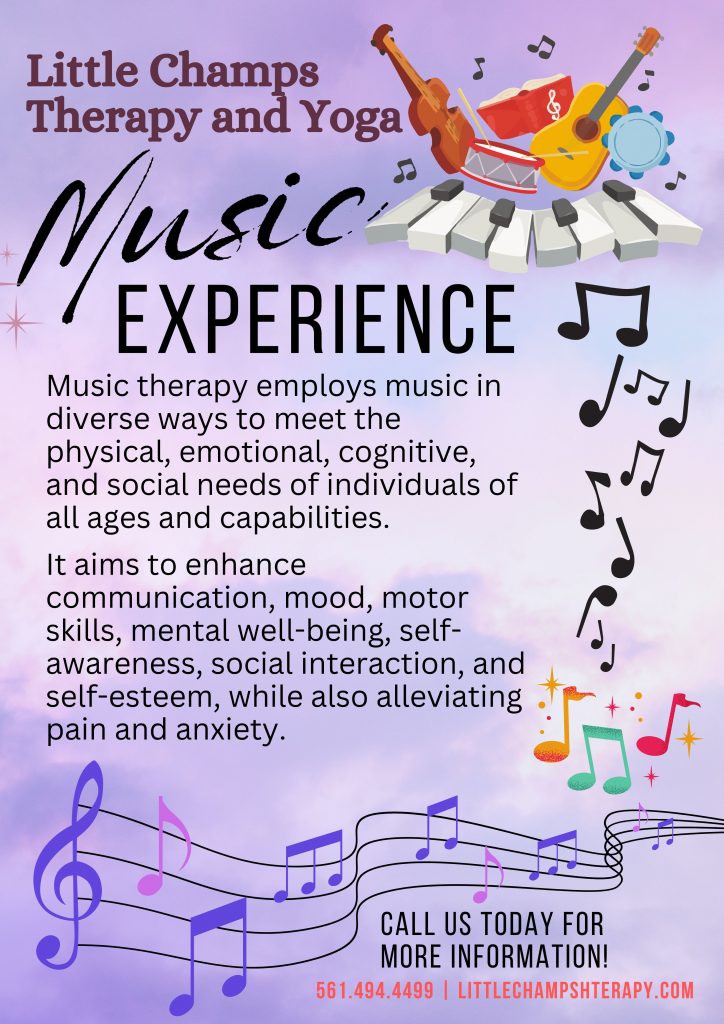MUSIC THERAPY FROM
Birth to Life
If your child exhibits a favorable reaction to music, consider delving into the advantages of music therapy for autism at Little Champs Therapy & Yoga. Under the guidance of our certified music therapist, we facilitate communication through the transformative influence of music, offering immersive sensory encounters throughout the journey. Centered on bolstering communication abilities, our music therapy initiative encompasses a wide spectrum of domains, spanning from linguistic growth to individual expression, tailored to accommodate individuals of all ages with autism.
How Little Champs Can Help
One compelling reason why music is rapidly becoming an integral part of autism therapy is its unique capacity to activate both hemispheres of the brain, distinguishing it from other therapeutic methods. Our certified music therapists tackle a wide array of psychological, social, physical, cognitive, language, and behavioral hurdles.
Harnessing the transformative power of music, our therapists utilize melodies and instruments to bolster cognitive exercises, nurturing self-awareness and enriching interpersonal connections. Promoting communicative behaviors and social interactions stands as a primary objective, as individuals with autism often grapple with these aspects. Introducing musical instruments into therapy sessions enables these individuals to establish initial connections with the instruments, paving the way for further engagement with peers who share the same musical interests. This innovative approach facilitates gradual advancements, proving to be a highly effective tool for individuals navigating the challenges of autism.

What to expect in Music Therapy
In the music therapy sessions at Little Champs, we focus on building essential communication skills while incorporating elements of relaxation and motivation. Our therapists understand the significance of gradual skill development and introduce activities such as singing, dancing, listening, and playing musical instruments one step at a time. With patience and a nurturing learning environment, your child will have the opportunity to explore and develop these new skills at their own pace, creating a safe and supportive space for growth.
Benefits of Music Therapy for Autism
Music therapy provides valuable assistance to individuals with autism in the following ways:
- Enhancing language comprehension skills: Our therapists use songs relevant to specific activities to aid in understanding word meanings.
- Encouraging speech development: Through music, we incorporate syllable and consonant-vowel sounds to bolster language skills, helping individuals grasp word pronunciation.
- Addressing sensory issues: Music therapy stimulates senses, improves focus, and redirects self-stimulating behaviors towards socially appropriate actions.
- Fostering two-way communication: The therapy focuses on building social skills, encouraging peer interaction, and promoting meaningful conversations.
- Facilitating self-expression and emotional response: By engaging in music, dance, movement, noise-making, or singing, individuals with autism can effectively express their emotions.
- Reducing monotone speech: The inclusion of singing in therapy sessions provides examples of rhyming, word pronunciation, and speech flow accompanied by music, which aids in minimizing monotonic speech patterns.

